
Eavesdropping on the Freedom of Expression in India
Eavesdropping on the Freedom of Expression in India
Keywords: Freedom of Expression in India
More...
Keywords: Freedom of Expression in India
More...
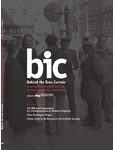
Keywords: Czechoslovakia; SOE; Reinhard Heydrich; assassination; Josef Gabčík; Jan Kubiš; Operation Anthropoid;
On Wednesday, 27 May 1942, at 10:35 AM, Warrant Officers Josef Gabčík and Jan Kubiš, sent from the UK, carried out the assassination of the acting Reich Protector, SS-Obergruppenführer and Police General Reinhard Heydrich, who was travelling from his home in Panenské Břežany to Prague. We are at present marking the seven decades that have elapsed since this important historical moment (it really was a moment – about twenty seconds long). What role in the whole operation was played by the Special Operations Executive (SOE)?
More...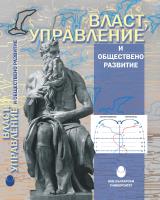
Keywords: Management; Human Capital; Bulgaria; Criticism; Fiscal reforms 2001 and 2003-2008; Healthcare; Education; Social assistance
In this study are analyzed and evaluated quantitative and qualitative characteristics of the human capital as well as the factors on which they depend. It is made forecast of the quantitative characteristics dynamic by 2035 and a critical assessment of the demographic policy. It is made a comparative analysis of the budget policy after the fiscal reform of 2003-2008 and that from 2001. It is proved that this reform injury human capital. It is analyzed and critically evaluated results of the management of healthcare, education and social assistance as factors for human capital. The report ends with conclusions and recommendations for change in human capital policy.
More...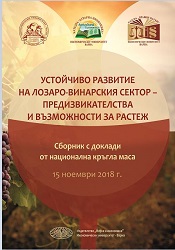
Keywords: vine and wine sector; Law on Wine and Spirits; institutions of the vine and wine sector; financial support, support to the vine and wine sector
The report examines the institutional framework in which the vine and wine sector of Bulgaria operates. A study has been made of the legal basis on which the sector is regulated, the institutions that regulate its processes, the scientific and personnel servicing of the sector, the vineyard register, etc. As a member of the European Union, Bulgaria applies the mechanisms of the Common Organization of the Wine Market. The sector's financial support policy for the post-2000 period has been explored. A special place is given to the role and importance of the National Support Programs for the Vine and Wine Sector.
More...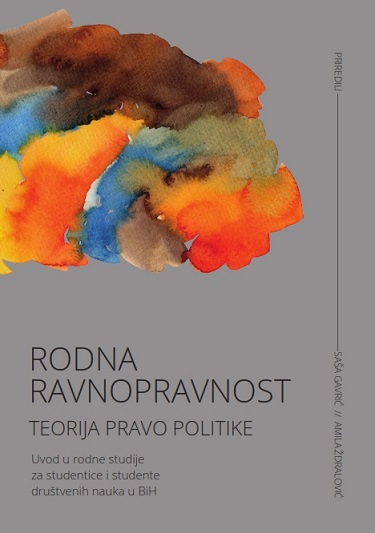
Keywords: Institutional mechanisms; public policies; gender equality; gender studies; gender discrimination; women’s rights; human rights;
Postojanje institucionalnih mehanizama za ravnopravnost spolova se smatra bitnom pretpostavkom za ukidanje diskriminacije na osnovu spola/roda i ostvarivanje ciljeva rodne ravnopravnosti. Potreba za uspostavljanjem institucija koje će se specifično baviti ovim pitanjima je prepoznata i istaknuta tokom Četvrte svjetske konferencije o ženama 1995. godine u Pekingu (vidi rad II.1 Ujedinjene nacije autora Damira Banovića). Zaključci ove konferencije su sadržani u Pekinškoj deklaraciji i Platformi za akciju kada je zaključeno da vlade imaju primarnu odgovornost za sprovedbu Platforme za akciju te da bi mehanizmi i institucije za unapređenje položaja žena trebali sudjelovati u formuliranju javne politike i poticati sprovedbu Platforme ali i djelovati kao katalizator u razvoju novih programa (Platforma za akciju, 1995, Glava V-A). Komitet za eliminaciju diskriminacije žena Ujedinjenih naroda (Opća preporuka br. 28, 2010) preporučuje postojanje ovih institucija kao jednu od osnovnih pretpostavki za sprovođenje člana 2. CEDAW konvencije.
More...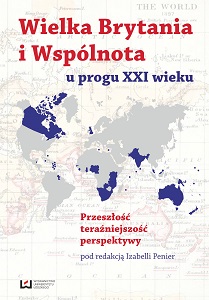
Keywords: British Defense Policy;United Kingdom;British General Election of 2010
The article discusses major weapons investments carried out at present and planned in the future by the United Kingdom. Individual investments are analyzed in terms of their potential relevance for the British armed forces, the costs of completion and the factors that influence the decision to choose a particular variant of the weapon. In the last part of the paper, the British dilemmas with nuclear forces are characterized.
More...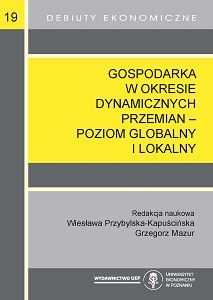
Keywords: samochody elektryczne;BEV;środowisko naturalne;rynek samochodów elektrycznych;akumulatory;Polska;
W artykule podjęto próbę zbadania potencjału wzrostu sprzedaży samochodów elektrycznych w Polsce do 2025 roku. Dotychczas w polskich pozycjach naukowych, w przeciwieństwie do zagranicznych, skupiano się głównie na kwestiach związanych z akumulatorami w samochodach oraz na tematyce dotyczącej ochrony środowiska. Zdaniem autora w literaturze brakuje kompleksowych prób oceny wzrostu rynku aut elektrycznych w Polsce w kolejnej dekadzie. Głównym celem pracy była ocena możliwości wzrostu sprzedaży pojazdów elektrycznych w kraju do 2025 roku. W tym celu wykorzystano narzędzia ze „Strategii błękitnego oceanu”. Za pomocą kanwy strategii oraz mapy użyteczności dla nabywcy dowiedziono, że samochody elektryczne będą się rozwijać w szybkim tempie ze względu na niewielką skalę, jednakże nie staną się one do 2025 roku produktem masowym na polskich drogach.
More...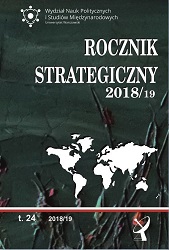
Keywords: CSDP; PESCO; EDF; European Intervention Initiative (E2I)
The article discusses the evolution and functioning of the Common Security andDefence Policy of the EU in 2018. The authors start with an analysis of externaland internal determinants of cooperation within CSDP, with particular attention tothe impact of transatlantic relations and US approach to the European initiativesas well as of internal tensions in the EU. Then they discuss the implementation ofthe decisions from December 2017 on the initiation of PESCO, which constitutesthe central topic of the paper. The functioning of European Defence Fund is alsoanalyzed, as well as the essence and implications of the French proposal of EuropeanIntervention Initiative (E2I). In the last part of the article, operational engagementof the EU is briefly presented, including a discussion of modifications of CSDPand ways of implementing them, namely Civilian CSDP Compact (CCC), and thedebates over the future of maritime activities of the EU in the Mediterranean. Theauthors conclude with an assessment of the results of the development of PESCOand EDF in the last year and of the perspectives of future cooperation.
More...
Keywords: India’s foreign policy; balancing policy; the Asia-Pacific region
The aim of the article is to analyze the evolution of India’s strategy in the Asia-Pacific region after 2014, i.e. after the Indian People’s Party (Bharatiya Janata Party,BJP) came to power and the post of prime minister was taken over by NarendraModi. The article characterizes and discusses the main assumptions, directions, andinstruments of India’s foreign policy in the Asia-Pacific region.The article attempts to answer two main research questions: whether and, if so,why has India adopted a more active strategy in the Asia-Pacific region; and whether,in its strategy in the political-strategic and security sphere, it has opted for an alliancewith the USA in the Asia-Pacific region.Answers to these questions will allow us to verify hypothesis stating that,especially under the influence of the dynamics of intra-regional relations in foreignpolicy in 2010s, India has redefined its role and position on the Asian continent andhas strived to implement a balancing policy in order to limit China’s increasinglyimportant role and to prevent the shift of power on the Asian continent in favour ofBeijing. To achieve its goals, India advocates a political and strategic alliance withthe USA and its allies as one of the pillars of a democratic, liberal order in the Indo--Pacific region (as an alternative to the order proposed by China).The theoretical tool used in this case study of India’s regional strategy is thecategory of balancing policy. This research tool was selected for its cognitiveand explanatory values which emphasize the importance of the anarchism of theinternational system and the fact that the rules of relations between states area function of the balance of power between them.
More...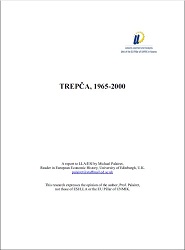
Keywords: Trepča Mining;
I initiated research on this report in July 2002, mainly using materials in the public domain in Belgrade, Yugoslavia. In particular, use was made of Trepča, the Combine’s internal newspaper, for 1989-1999. This preliminary research familiarised me with the central issues regarding the business of RMHK “Trepča” in the recent past, and identified issues likely to bear on the problems of the enterprise. It provided a basis for further research carried out October-December 2002 on documents held at RMHK “Trepča”s head office at Zvečan, files at the offices of EU in Priština, and Trepča documents also held by UNMIK/EU and stored on 25 CD-Rom disks.
More...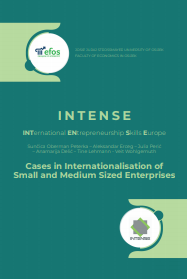
Keywords: case study; SMEs; internationalization; M-Diary; ICT; health; migraine;
In Europe, 14.9% of all adults aged 18-65 suffer from migraines, a headache disorder causing episodic attacks with strong headache, nausea, visual, and aural over sensitivity and other symptoms (The World Health Organization, 2011). One of the affected people is Julia Schulze, the sister of Fabian Schulze. In his teenage years, Fabian often had to experience how his older sister suffered from the attacks, taking her out for one or sometimes for several days. It happened more than once that the family had planned weekend trips and that they had to be cancelled last minute because Julia had one of her migraine attacks. She saw multiple doctors to help her solve the headache problems, but none of the researched medical solutions caused a significant improvement for Julia.
More...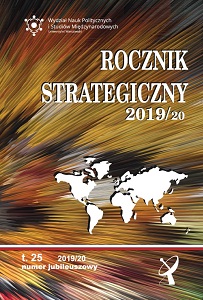
Keywords: Common Security and Defence Policy (CSDP); Permanent Structured Cooperation (PESCO); European Defence Fund (EDF); European Commission (EC); Civilian CSDP Compact (CCC); CSDP missions and operations
The article discusses the evolution and functioning of the Common Securityand Defence Policy of the EU in 2019. The authors begin with an analysis of the maindeterminants of cooperation within CSDP, focusing on the impact of the perspectiveon Brexit as well as internal political changes and tensions in main European countries(France, Germany), and US-Europe relations. They discuss the evolution of the politicaldimension of European cooperation on security and defence, including the debates onEuropean strategic autonomy and changes in European institutions. They also presentthe development of PESCO, including the course of the debates on the participationof third states in this initiative, as well as it’s functioning in 2019. Additionally, theyanalyze current changes in operational activities (i.e. CSDP missions and operations),including modifi cations of key instruments for executing such actions, like the socalled Civilian Compact. In conclusion, they off er an overall assessment of the resultsand achievements of CSDP in 2019, together with a concise prognosis of its futuredevelopment.
More...
Keywords: Germany; Angela Merkel; grand coalition government; European Union; NATO; United States; France; Russia; China
Thirty years after the fall of the Berlin Wall and the German reunifi cation a year later,the Federal Republic of Germany is facing new challenges in internal and foreignpolicy. The main goal of this article is to describe the trends and key events shapingboth these spheres. Firstly, the author describes the evolution of the German partysystem as well as the emergence of the climate policy as a key issue infl uencing voters’preferences. The second part of the article focuses on the way Germany is graduallyadapting to new global realities in which globalization is accompanied by growingrivalry of global and regional powers. Following a two-way strategy, Angela Merkel’sgovernment tries, on the one hand, to protect the multilateral order and, on the other, toreconcile contradictory interests in relations with China and Russia while maintainingstrategic alliance with France and the USA. In the meantime, Germany is awaitinga new political era after chancellor Merkel leaves offi ce, which may prevent the FederalRepublic from taking bolder steps in foreign policy until a new political constellationemerges. However, Brexit and the decision on Huawei and ZTE participation in buildinga German 5G network might speed up the process of defi ning the role of post-MerkelGermany in world politics.
More...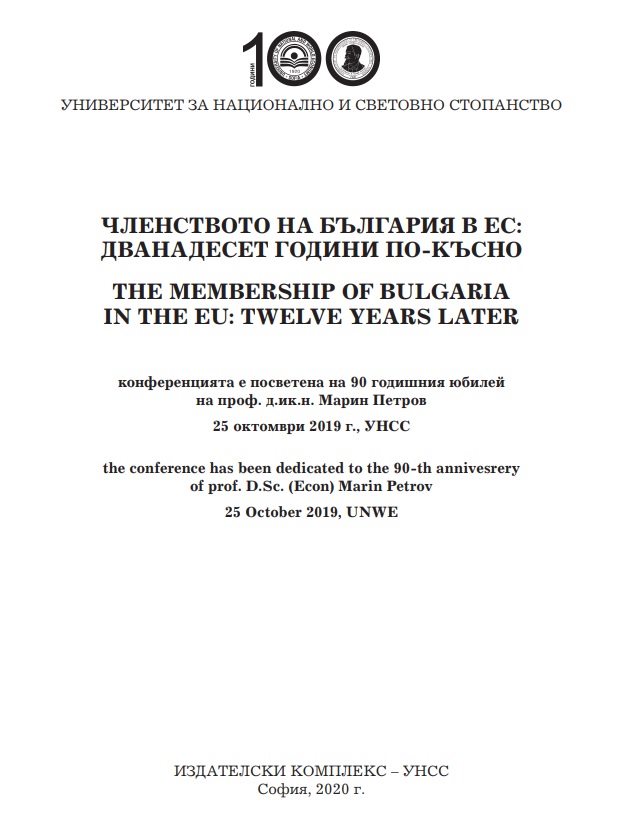
Keywords: European Green Deal; energy transition
The European Green Deal is the first multilateral strategy to ensure sustainable future for the entire EU. The Union intends to engage other countries and continents in commitment to the Paris agreement through expedient policy making, law engagement, leading by example and active diplomacy. EU has the potential to become a world leader in this continues process of energy, technological and economic transformation which would contribute to preserving the Earth and the mankind. The European Green Deal is vastly enveloping and transformative, it reaches beyond the frame of the pragmatic and technocratic solutions and, by necessity, transmutes itself into a philosophical problem.
More...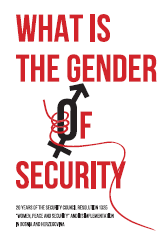
Keywords: security; gender; Security Council; Resolution 1325; women; peace; regional context; human rights;
The Security Council Resolution 1325 “Women, Peace and Security” represents one of the most important documents which regulate the enjoyment of women’s human rights at the global level. The Resolution also had the key influence on the gender mainstreaming of policies and practices in the field of peace and security at the level of nation-states, regional and international organisations, but also of local communities.
More...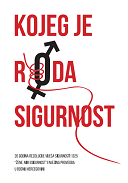
Keywords: security; gender; Security Council; Resolution 1325; women; peace; regional context; human rights;
Rezolucija Savjeta bezbjednosti 1325 “ Žene, mir i bezbjednost” predstavlja jedan od najznačajnijih dokumenata koji regulišu sprovođenje ženskih ljudskih prava na globalnom nivou. Rezolucija je imala ključni uticaj na urodnjavanje politika i praksi u oblasti mira i bezbjednosti na nivou nacionalnih država, regionalnih i međunarodnih organizacija, ali i lokalnih zajednica.
More...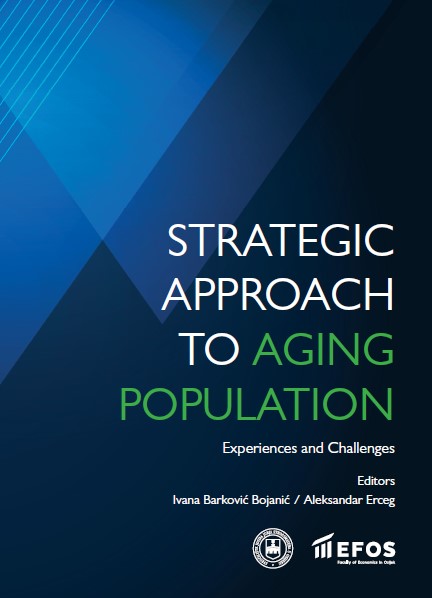
Keywords: aging society; national strategy; the Republic of Croatia; pension system; healthcare system;
According to statistics for the European Union (EU), the European population age structure is expected to change significantly. Long-term projections for the EU indicate a substantial increase in the share of people aged 65 and above. Due to higher life expectancy and fertility rate decrease, the EU faces a decline in the working-age population and growing demand for social and health services. According to Eurostat, the share of the very elderly population (80 and over) in the Republic of Croatia will be more than double in 2070 compared to 2019. The total population of the country will decrease to 3 million inhabitants. The purpose of this paper is to provide an overview of measures planned in the Croatian National Development Strategy (CNDS) for the period 2021-2030 related to the said issues. The fundamental question is how to achieve a sustainable pension system and public finances in such circumstances. The findings and recommendations may be used for policy suggestions to relevant institutions to create adequate solutions for our citizens.
More...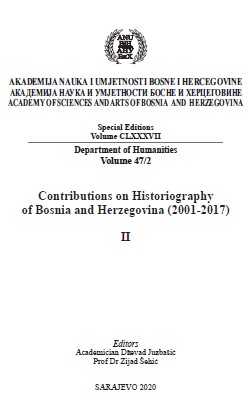
Keywords: Srebrenica; verdicts; genocide; victims; responsibility; Army and police of the Republic of Srpska; State Security Service of the Republic of Serbia; Directive no. 7; Dutch Battalion (HOBLAT);
There are numerous papers dealing with research of genocide in Srebrenica, as well as papers dealing with denial of it. An insight into a number of publications related to these topics raises the question of whether quantity prevails over quality and how much research on genocide in Srebrenica is based on scientific methods and how much on the arbitrary interpretation of historical events. This paper presents an overview of a large number of published works, with particular emphasis on a more detailed analysis of the work of historians as well as published historical sources. Many trials before national and international courts have been conducted against individuals charged with crimes against humanity and international law, including the crime of genocide committed in and around Srebrenica from 10-19. July 1995. Detailed descriptions of mass executions, with data on the number of victims, forensic evidence, mass graves of primary, secondary and tertiary character, can be found in the verdicts rendered in the abovementioned court processes. The significance of these judgments for the historiography of the Srebrenica genocide is immeasurable. They represent an important historical source and a starting point for any further research. The documents in the possession of the ICTY, which were used in the above processes, are available in the Tribunal’s electronic database and are also very significant for historical science. The verdicts gave a detailed reconstruction of the “nine days of hell,” as judges characterized the period after the fall of Srebrenica. The question of representation of earlier periods in historiography, relating to very dynamic developments within Srebrenica during 1992, 1993 and 1994, is also discussed in the paper. Public discourse on the Srebrenica genocide is completely dominated by topics from July 1995, which gives the impression that the period preceding the fall of the enclave is neglected.
More...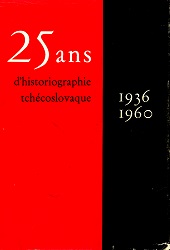
Keywords: Czechoslovak historiography;
If this collection gives an overview of the harvest of the last twenty-five years, it is because, on the one hand, Marxist historiography has been able, on more than one point, to accept the results of previous research, that, on the other hand, many historians of the previous era, while freeing themselves from outmoded conceptions which no longer met the modern requirements of science, appropriated the philosophical foundations of dialectical materialism and that finally, even in the period preceding the year 1945, one could sense in some works a foretaste of the Marxist conception of history. (as written in 1960)
More...